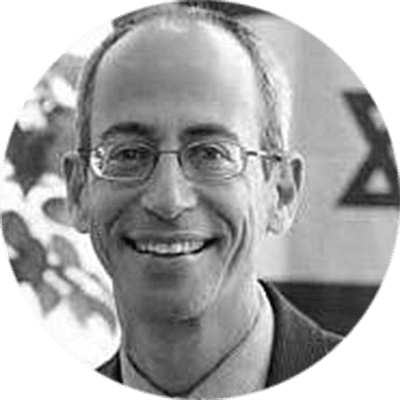The Israeli Elections as an Educational Opportunity
National elections will be held for the 21st Knesset in Israel on April 9, 2019. The elections are an educational opportunity to connect the lives and fate of our students to the lives and fate of our Israeli brothers and sisters.
Often students have an idealized view of Israel or know Israel through the eyes of ancient history. The current elections afford students with a window into current events—a topic that is on the minds of every Israel today-–and present anything but an idealized or mythic view of Israel. This election cycle is particularly fraught and several resources are available to help make sense of the confusion.
However, before one gets too enmeshed in the legal allegations against Prime Minister Netanyahu, the subtle nuances between right wing parties like Hayamin HaChadash and Likud, or the platform of former Chief of Staff Benny Gantz’s party “Israel Resilience” [now: “Blue and White”], it is a good idea to take a step back and ask some basic questions.
Do parents think Israeli politics should remain outside of school? Likewise, does the community tend to lean more conservative or liberal and how might that affect classroom discussions? Should teachers share with students their personal opinions on the candidates? Does any of this matter given that the students are not voting in the election?
The Marshall Memo (Issue 609) from October 26, 2015 summarized an article original entitled “The Elephant (and Donkey) in the Room” which may help educators think through some of these issues even though the article is referencing the American elections. Below is a partially edited version of the original Marshall Memo post:
In this article in Education Update, Sarah McKibben discusses whether and how teachers should handle the presidential election as it unfolds in the months ahead. One study of the 2012 election cycle found that one-quarter of civics teachers worried that they would get parent pushback if they got into politics in their classrooms, and only 38 percent believed districts would have their backs. Teachers also feared that student debates might get out of hand because of deep polarization around a number of issues, as well as taking time away from covering the regular curriculum.
But avoidance is a mistake, says Peter Levine of the Center for Information and Research on Civic Learning and Engagement (CIRCLE). His group’s research found that high-school students who learn about elections and other civics topics are “more likely to vote, to form political opinions, to know campaign issues, and to know general facts about the U.S. political system.” Another study found that good civics education helps students build understanding and tolerance of opposing political viewpoints. “The purpose of school should not be to simply reinforce the ideological choices people are making in their homes,” says Diana Hess of the Spencer Foundation. “We want kids to develop as political beings in the most democratic environment we can create.” In that vein, McKibben has several suggestions for teachers:
- Keep the community context in mind.For example, a teacher in the Washington, D.C. area found parents particularly sensitive to political discussions because many had jobs that were directly affected by the outcome of a presidential election. When he moved to a New York City high school, parents encouraged him to teach about politics from a radical perspective.
- Make sure you have support from above. With a potentially controversial assignment – for example, asking students to argue a viewpoint opposite to their own – it’s wise to check first with the principal or department head.
- Think through whether to disclose your own political views.In the study conducted by CIRCLE, 75 percent of civics and U.S. government teachers said they avoided sharing their own positions on elections and current issues. There’s no evidence that teachers sharing their views influences students’ political views, but it’s wise to check in with superiors.
- Make sure all sides are presented. Students don’t benefit from a one-sided picture. “If we don’t give multiple perspectives in our classrooms, where are students going to [be exposed] to them?” says Indiana social studies teacher Kevin Zupin. “We have to tackle the controversy.”
- Avoid treating the election as a horse race. The ups and down of opinion polls are not the real story; better to talk about candidates’ views on specific issues.
- Structure political discussions. “The last thing you want is a talk show atmosphere in the classroom when you’re talking about politics,” says Levine. A fishbowl format with clear ground rules and criteria for grading can work well: a group of 5-7 students sits in an inner circle discussing an essential question while the rest of the class observes in an outer circle. Then the two circles switch places. “Even when you’re in a homogenous political community, there’s more ideological diversity than one would expect,” says Hess. “Kids are undecided on many issues.” Here are some discussion grading criteria from the Deliberative Dialogue Rubric developed at Indiana University:
– Ability to support comments – referencing resources discussed in class;
– Questioning skills – asking classmates thoughtful questions;
– Understanding the topic – showing higher-order thinking and multiple perspectives;
– Mindfulness – being respectful of others.
- Give students first-hand experiences. This can include watching debates on TV, exploring websites, and, if possible, seeing candidate events in person.
- Take advantage of teachable moments in other subject areas. For example, math teachers can explain electoral voting statistics or the facts and figures raised in debates. Science teachers can use debates on budgets, space exploration, or climate change to go deeper into those topics.
“The Elephant (and Donkey) in the Room” by Susan McKibben in Education Update, October 2015 (Vol. 57, #10, p. 1, 4-5), available for purchase at http://bit.ly/1Gt50ps; the author can be reached at sarah.mckibben@ascd.org.


